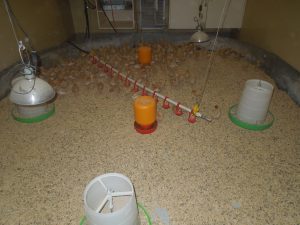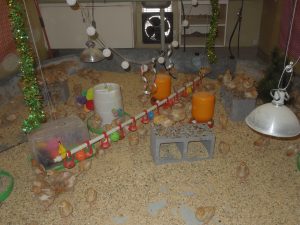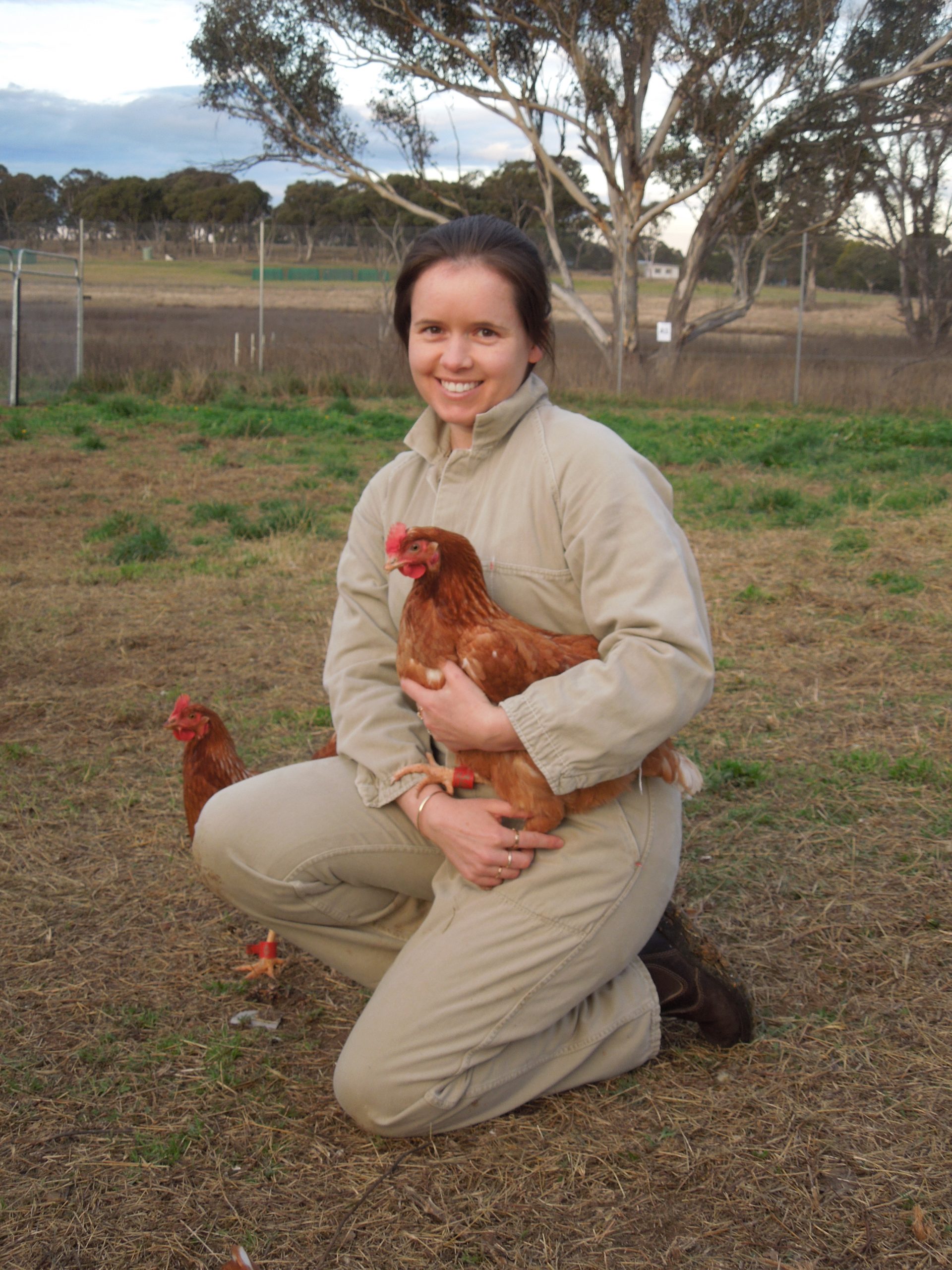Early-life environments affect behaviour of free-range laying hens
The environment in which you grow up can impact your behaviour and health as an adult – the same is true for laying hens. Free-range laying hens represent a unique situation where pullets are reared indoors in controlled, consistent conditions, but as adults they are provided access to the great outdoors. The outdoor range while giving the birds a greater freedom in a more natural setting, may also expose them to predators and greater environmental stress such as inclement weather. This difference between indoor rearing and range access can be a dramatic environmental change for birds that have become accustomed to an indoor setting. Consequently, outdoor access may cause stress and lowered productivity if birds are not used to variable environmental stimuli (e.g. different noises, sights, etc).
Dr Dana Campbell, University of New England (UNE) and Commonwealth Scientific and Industrial Research Organisation (CSIRO), and her colleagues Professors Geoff Hinch, Jeff Downing and Dr Caroline Lee (based at UNE, The University of Sydney, and CSIRO, respectively) were interested in investigating the impact of rearing on adult birds. They wondered whether different early-rearing environments would affect ranging behaviour and responses to stressful environmental events encountered by adult free-range laying hens. The Poultry CRC supported a study using three hundred day-old Hy-Line® Brown chicks reared in either standard, non-enriched conditions with no additional environmental stimuli, or in an ‘extreme-enriched’ condition where birds were provided with multiple objects to climb on or interact with (e.g. cinder blocks, pet toys, overturned boxes), including random noise playbacks and coloured lights. The enriched birds were only exposed to all these stimuli for three weeks then the enrichments were removed and all birds were kept in the same conditions for the remainder of rearing.

The birds, both non-enriched-reared and enriched-reared, were later placed into an experimental free-range facility located at UNE and banded with microchips on their legs. Using radio-frequency identification technology, the ranging behaviour of all the birds was measured from first range access at 21 weeks of age up to 42 weeks of age. Initially, the enriched birds showed more visits to the range than the non-enriched birds and spent more days outside in the first few weeks of range acclimation. Across time, the differences between the enriched and non-enriched birds diminished as all birds became accustomed to the outdoor environment.
However, when stressful environmental events were implemented around 38 to 42 weeks of age (including the birds being locked inside for two days and the range being reduced to 20% of its original size) the enriched and non-enriched birds reacted in different ways. Measures of corticosterone (stress hormone) in the albumen of the eggs showed that the non-enriched birds were more stressed than the enriched birds, and correspondingly, the enriched birds showed more changes in their ranging behaviour when the range was reduced in size.

These results suggest that birds exposed to variable, enriched environments when they are young have a better ability to behaviourally adapt to changes in their environment when they are older, and experience lower physiological stress responses. To confirm these findings, Poultry CRC is funding a new project to be run by Dana and her colleagues, called “Effects of rearing environments on ranging, adaption to stressors and health in free range laying hens”. Although this project will be an activity of the CRC, it will be managed by Poultry Hub Australia as Poultry CRC will shut down on 30 June. In the meantime, the current work will be submitted for peer-review publication and Dana and her colleagues are planning to identify more practical enrichments that could be used by industry to help prepare pullets for an outdoor free-ranging life.


